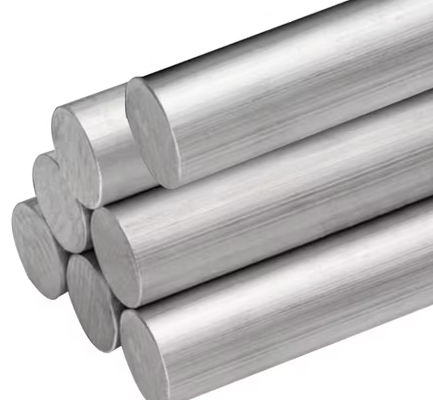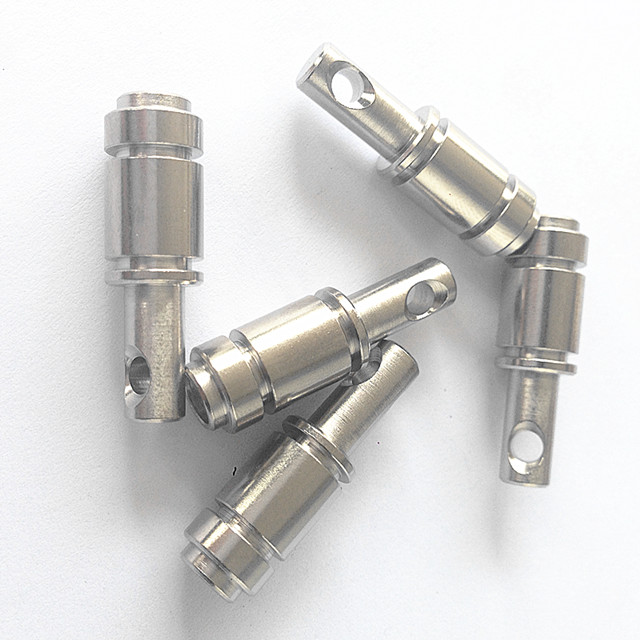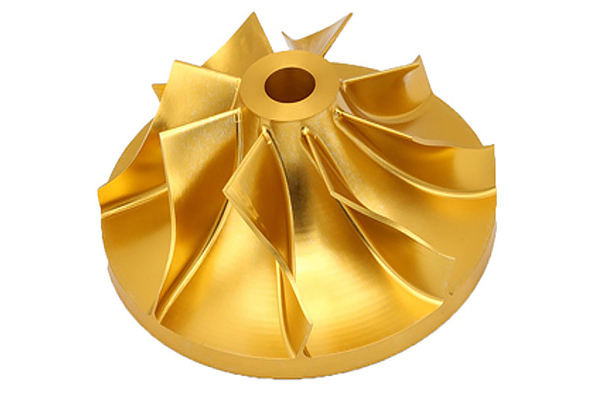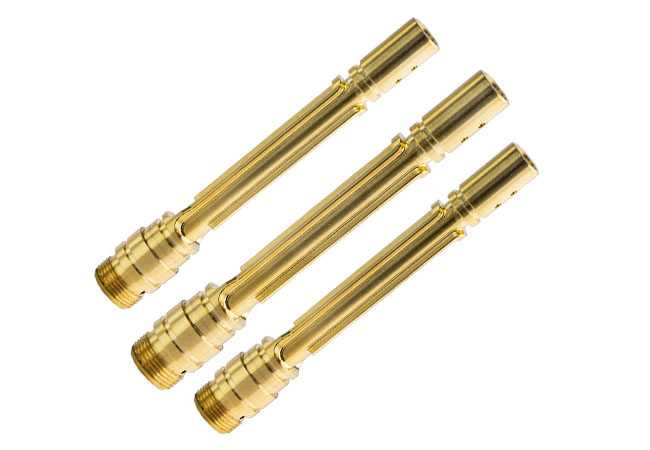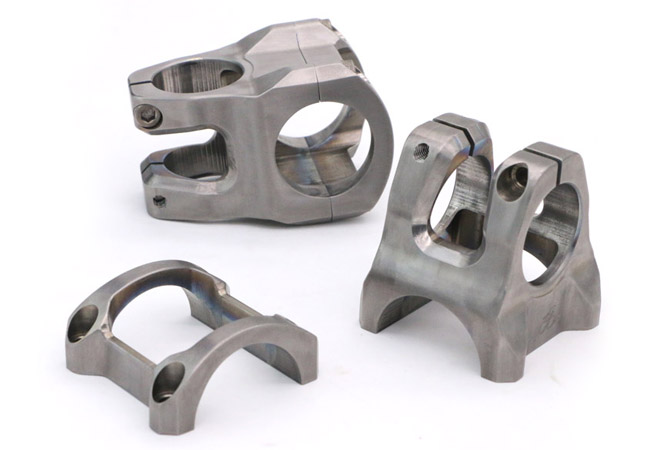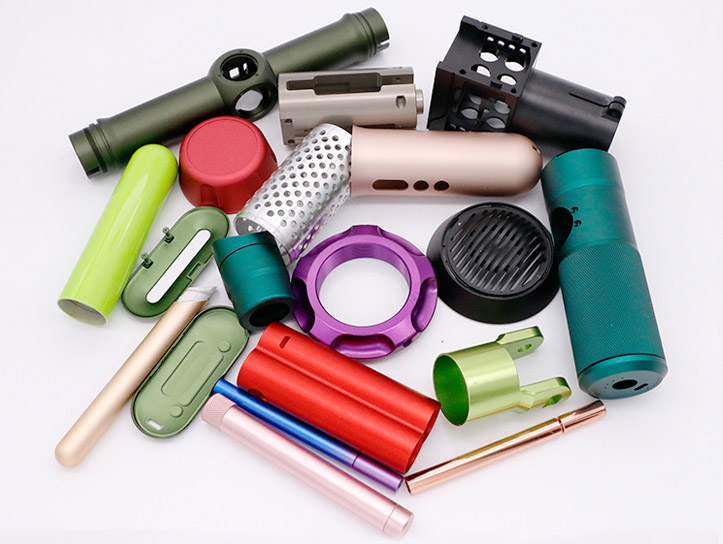VMT’s blogs aim to share our practical experience and knowledge accumulated during the manufacturing and product development process. Our goal is to use these articles to help you improve product design and increase your understanding of CNC machining, 3D printing, rapid prototyping, low-volume manufacturing, and surface treatment technologies. The information we provide is designed to provide actionable guidance and insights for your CNC machining projects.
Materials Suitable for CNC Machining
Choosing the right material is a crucial step in CNC machining. It directly affects the ease of the machining process, the quality of the final product, and the overall cost-effectiveness of production. Key factors include the material’s hardness, toughness, and thermal conductivity as well as strength, wear resistance, and corrosion resistance. The material’s machinability also plays a role in determining efficiency and product quality.
This article will explore the materials commonly used in CNC machining, including aluminum alloys, stainless steel, brass, titanium alloys, and various plastics. Each material has unique properties and advantages that make it suitable for specific applications. By understanding the properties of these materials, this guide is designed to help you make an informed choice for your project and how VMT can select the best CNC machining materials for your project.
Commonly used CNC Machining Metal Materials
Common CNC Machining Metal Materials
When it comes to CNC machining, metal materials are popular for their strength, durability, and versatility. Each metal has unique properties that make it suitable for a variety of applications, from automotive parts to medical devices. Below you will learn about some of the most commonly used metals and their properties in CNC machining.
1. Aluminum Profiles
Aluminum is a lightweight, silvery-white metal known for its excellent ductility and machinability. It is easy to cut, extrude, and cast, and has a wide range of uses.
Types of Aluminum:
Below is a detailed comparison of commonly used aluminum alloys in CNC machining, along with their combined features and characteristics.
| Type | Description | Features |
|---|---|---|
| Aluminum 6063 | A versatile aluminum alloy with high plasticity, ideal for applications needing heat-treated components. | Flexible and tough, easy to cut, bend, drill, and weld. Strong and rigid, making it suitable for structural components. |
| Aluminum 6061 | A well-rounded aluminum alloy valued for its strength and machinability. | Dense, uniform structure with consistent hardness. Easy to weld and electroplate, making it great for mechanical and aerospace parts. |
| Aluminum 6075 | An alloy with added elements like copper and zinc for enhanced properties. | Highly machinable into complex shapes and profiles. Great for detailed components that require both strength and precision. |
| Aluminum 5052 | A high-strength alloy designed for durability and resistance to corrosion. | Excellent for use in harsh environments due to its resistance to saltwater and chemicals. Easy to weld but less suited for machining-intensive tasks. |
| Aluminum 7075 | A premium-grade alloy known for its high strength and lightweight properties. | Extremely strong yet lightweight, commonly used in aerospace and automotive industries. Less corrosion-resistant but easy to anodize for added protection. |
| Aluminum 2024 | A high-performance alloy with exceptional strength-to-weight ratio. | Popular in aerospace applications. Offers superior fatigue resistance but is less corrosion-resistant compared to other alloys. |
2. Steel:
Steel is a combination of iron and carbon. The average service life of steel is 100 years and it will remain hard without expansion or creep. It has stable processing performance and can be processed into complex shapes through forging, rolling, welding and other methods. At the same time, the steel is high in strength and can maintain its strength even under tension and heavy loads. It is suitable for manufacturing parts and structural parts that bear large loads.
3. Copper:
Pure copper is difficult to manufacture by itself because it is highly ductile and cold workable. But copper alloys can be manufactured using CNC machines.
Copper has good electrical and thermal conductivity, good machinability, ductility, corrosion resistance and good plasticity during processing, is easy to hot press and cold work, has good weldability, and is suitable for electrical, electronic and refrigeration industries.
4. Brass :
Brass is an alloy composed of copper and zinc, which is widely used in various fields for its excellent properties. It has a low melting point of about 900 to 940°C (1650 to 1720°F), good fluidity, and is very suitable for casting. At the same time, brass also has excellent wear resistance and excellent cutting performance, which can easily achieve high-precision cutting and complex shape processing in CNC machining.
In addition, brass can withstand hot and cold pressure processing and is suitable for making various structural parts, especially those that require wear and corrosion resistance, such as sleeves, gears, and valve bodies.
5. Titanium Alloy :
With the characteristics of high strength and low density, it is an important material in the fields of aerospace, etc. Titanium alloy is difficult to process, and due to its high strength, low thermal conductivity and chemical reactivity, special processing technology and cutting parameters are required, but the finished product has excellent strength and light weight.
CNC Machining Plastics
CNC machining is widely used for producing plastic components, thanks to its ability to create precise and complex shapes. Below is a detailed comparison of commonly used plastics in CNC machining, highlighting their features and processing characteristics.
| Material | Description | Features and CNC Machining Characteristics |
|---|---|---|
| POM | A durable plastic known for its smooth machining properties. | Easy to process with excellent fluidity during machining. It has high wear resistance and is ideal for components like bushings and gears that require durability and precision. |
| ABS Resin | A tough and versatile plastic with good machinability. | Offers high impact strength and a smooth finish. Easy to machine and customize, with good dimensional stability. Suitable for parts requiring durability and a polished surface. |
| Nylon | A strong and resilient plastic commonly used for mechanical parts. | High tensile strength and excellent impact resistance make it suitable for CNC machining of gears, bearings, and other durable components. |
| PEEK | A premium engineering plastic with outstanding heat and chemical resistance. | Performs well in CNC machining with high precision. Retains strength and rigidity even in extreme temperatures, making it ideal for aerospace and medical applications. |
| PE | A lightweight and flexible plastic with good machinability. | Easily machined using CNC techniques. Its excellent chemical stability and electrical insulation make it suitable for a variety of components and applications like containers and liners. |
How to choose the Right Material for CNC Machined Parts?
When choosing CNC machining materials, a comprehensive evaluation framework is essential, covering multiple key dimensions from machining environment to long-term benefits. The following is a refined and integrated guide to help you make a more informed decision:
1. Processing Environment Adaptability
Temperature and humidity considerations: Choose materials that can remain stable in high temperature or high humidity environments to avoid the risk of thermal expansion, cracking, and loss of cutting performance.
Coolant compatibility: Ensure that the selected material is compatible with the coolant to be used to improve processing efficiency, ensure processing quality, and prevent material corrosion.
2. Heat Resistance
Heat resistance: Pay attention to the stability of materials under high temperature conditions, prevent thermal expansion and warping, and ensure processing accuracy and product quality.
3. Other Key Factors
Material rigidity: Ensure that the selected material has sufficient rigidity to maintain stability and wear resistance during product design and use.
Material stability: For products with high precision requirements, materials with good stability are preferred to avoid deformation problems after assembly and during use.
Processing performance optimization: Consider the processing difficulty of the material and select materials that can reduce processing costs and improve production efficiency.
4. Appearance and Surface Quality
Surface finish: According to product requirements, select materials that can easily achieve the required finish to meet the product’s appearance and functional requirements.
Aesthetics: For products that focus on appearance, consider the material texture, color, and surface finish to enhance the overall appeal and market competitiveness of the product.
5. Budget and Long-Term Benefits
Cost control: Set a reasonable budget range and select cost-effective materials to control costs and improve economic benefits.
Long-term benefit assessment: Comprehensively consider the durability, maintenance cost and replacement frequency of the material, and select materials that can bring long-term economic benefits.
6. Partner with an Experienced CNC Manufacturer for Material Selection
Partner with VMT, a leading CNC machining provider with 15 years of experience. We offer a complete one-stop service, guiding you from material selection all the way to finished product manufacturing, making your project easier and more efficient.
In Conclusion
In the field of CNC machining, different materials exhibit different characteristics and are suitable for specific application scenarios. For example, metal materials are the first choice for heavy industrial products due to their high strength and corrosion resistance. Plastics, on the other hand, have a place in the field of consumer electronics and automotive lightweight due to their lightweight, easy processing and high cost-effectiveness. Therefore, it is crucial to flexibly select the most suitable material according to the performance requirements, cost budget and production cycle of a specific project.
Frequently Asked Questions About Materials
What are The Most Widely Used Plastic Materials For CNC machining?
In CNC machining, the most widely used plastic materials are ABS, nylon, PEEK (polyetheretherketone) and PE (polyethylene). With their excellent mechanical strength, chemical corrosion resistance and heat resistance, these materials have shown wide application value in many fields such as electronic appliances, automobile manufacturing, construction industry and medical equipment.
What is CNC Nylon Processing Technology?
CNC nylon machining technology requires dehumidification of the nylon material first to ensure stable clamping and accurate positioning, the use of sharp tools, reasonable setting of cutting parameters to control cutting heat, cooling measures to reduce deformation, cleaning, drying and quality inspection after processing. The entire process requires fine control of process parameters to ensure high precision and stability of the machined parts.
How to Fill Aluminum Holes?
To fill holes in aluminum, clean the surface thoroughly and use an aluminum epoxy or filler material. Mix the epoxy according to the instructions and fill the hole, ensuring it is slightly overfilled. Let it cure completely, then sand it down to a smooth, flush finish. For a permanent and stronger solution, welding with an aluminum rod is recommended, followed by grinding and polishing.
How to Cut Aaluminum Tread Plate?
To cut aluminum tread plate, use a fine-toothed blade on a circular saw, jigsaw, or band saw for clean cuts. Secure the plate firmly to prevent movement, and mark the cutting line with a marker or scribe.
Apply masking tape along the cut line to reduce chipping. Use a lubricant like cutting oil to minimize heat and ensure a smooth cut. Always wear protective gear, including gloves and goggles, for safety.
What is the best Tungsten for Aluminum?
The best tungsten for aluminum welding is typically pure tungsten or zirconiated tungsten. These types of tungsten perform well in AC welding, which is ideal for aluminum. They offer excellent arc stability and are resistant to contamination. For high-precision work, use a sharpened tungsten tip for better control.

